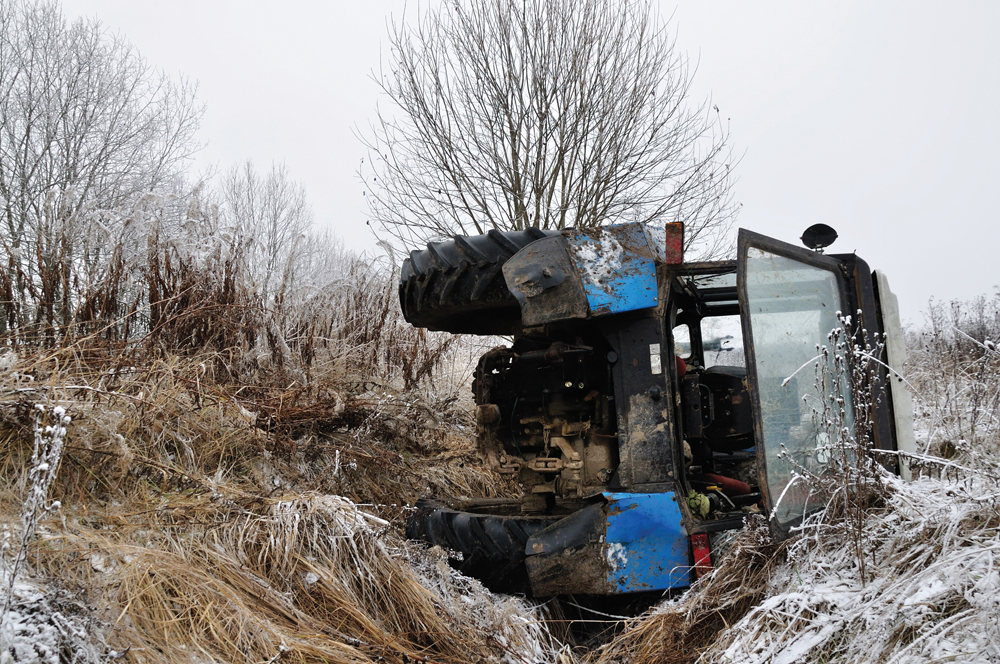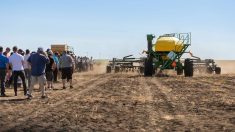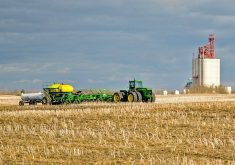With Canadian Agriculture Safety Week beginning on March 10, Manitoba farmers have got a tragic reminder of what’s at stake.
Renee Simcoe, communications co-ordinator for the Manitoba Farm Safety Program, said in an interview March 1 the farm safety issue never loses relevance to the people working on farms across the province.
“In this last week alone, we have had one serious injury and one fatality in Manitoba,” Simcoe said.
Recognizing the connections between farm, family and business safety across the country is one of the key themes driving the 2019 Canadian Agricultural Safety Week, an information campaign running March 10 to 16, sponsored by Farm Credit Canada.
Read Also

Mazergroup’s Bob Mazer dies
Mazergroup’s Bob Mazer, who helped grow his family’s company into a string of farm equipment dealerships and the main dealer for New Holland machinery in Saskatchewan and Manitoba, died July 6 from cancer.
The annual event is intended to repeat and reinforce the central idea that workplace safety applies as much to a farming operation as it does to any other type of business such as manufacturing or construction.
Simcoe said every year there are a “good handful” of fatalities in farming across Canada, a trend which, in other industries, would draw attention and efforts for change to prevent future tragedies.
“Because farming happens at home, a lot of farmers do not consider their operation to be a business,” Simcoe added, “so when there is any type of government intervention, they take it very personally.
“That is one of the reasons it is difficult to engage farmers because they are either unaware or they don’t think (workplace safety) legislation applies to them because it happens at home.”
Another factor affecting this situation is that, in the past, provincial workplace safety inspectors tended to focus on other types of businesses, like manufacturing, because many farming operations were located in remote areas not readily accessible.
Simcoe added that trend is changing because there has been a push by both the public and government to recognize fatality and injury rates in agriculture and the need to take action and reduce those numbers, or preferably eradicate them.
She added, the Manitoba Farm Safety Program has a safety consultant available to travel to farms and help owners cope with safety regulation concerns from the provincial inspectors.
“People call in… saying I just got an improvement order and don’t know where to start,” Simcoe said, “because they didn’t know the legislation applied to them, and they are shocked now they are getting visits.”
Simcoe noted that farm safety has clear connections to liability issues as well. The importance of proper training on farm sites and maintaining records of that training are essential to dealing with potential liability issues in the future, she added.
In addition to the Manitoba Farm Safety Program, another contributor to the 2019 Canadian Agricultural Safety Week campaign is the War Amps.
The War Amps Child Amputee (CHAMP) Program is supporting this year’s Safety Week effort by emphasizing the importance of child safety. They produced a video, entitled “PLAYSAFE: Don’t Let it Happen to You,” that presents the experiences of child amputees injured on farm sites. It is available free online at the War Amps site.
For more information about Safety Week, go online at agsafetyweek.ca and waramps.ca.
Agriculture still a dangerous business
The latest Manitoba farm fatality happened the night of February 25 on a farm 15 kilometres northwest of Virden.
Virden RCMP responded to a call there and found a 63-year-old male had become entangled in a grain auger, sustained serious injuries and died.
It’s a too-common story in Manitoba, where agriculture remains either the most dangerous or second-most-dangerous profession, depending on which measure is used.
A 2017 report from SAFE Work Manitoba painted a grim picture of safety on the farm.
In 2016, the last year the organization had full numbers for while writing the document, there were 12 fatalities in the entire Manitoba workforce and four of the victims were farmers.
To put that into perspective, the entire agriculture sector employs roughly one of every 10 Manitobans, while primary agriculture alone — a subset of that number — was the scene of a third of employment fatalities that year.
The news could be even worse, according to a recently released study of workplace deaths conducted by the University of Ottawa. Professor Steve Bittle was lead author of that report and he and his colleagues found that farm fatalities frequently aren’t captured in the statistics as farm owners aren’t covered by compensation schemes like workers’ compensation and the accidents themselves are in a bit of a statistical grey area when home and farm blend.
Bittle estimates a further 64 farm fatalities escape official statistics each year in Manitoba.



















